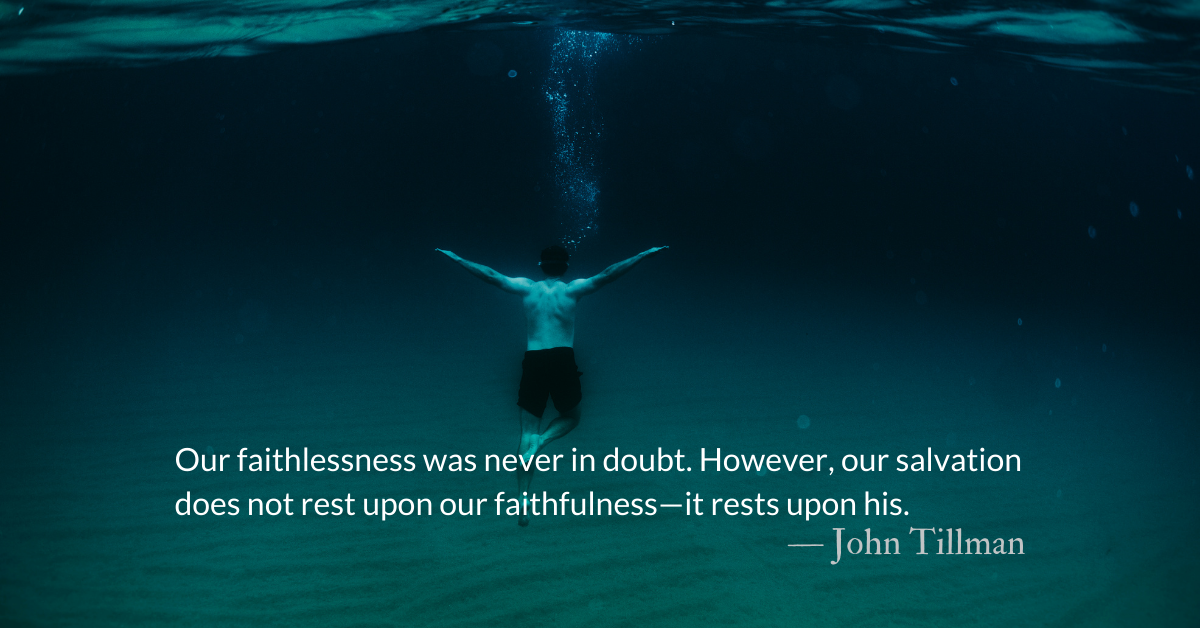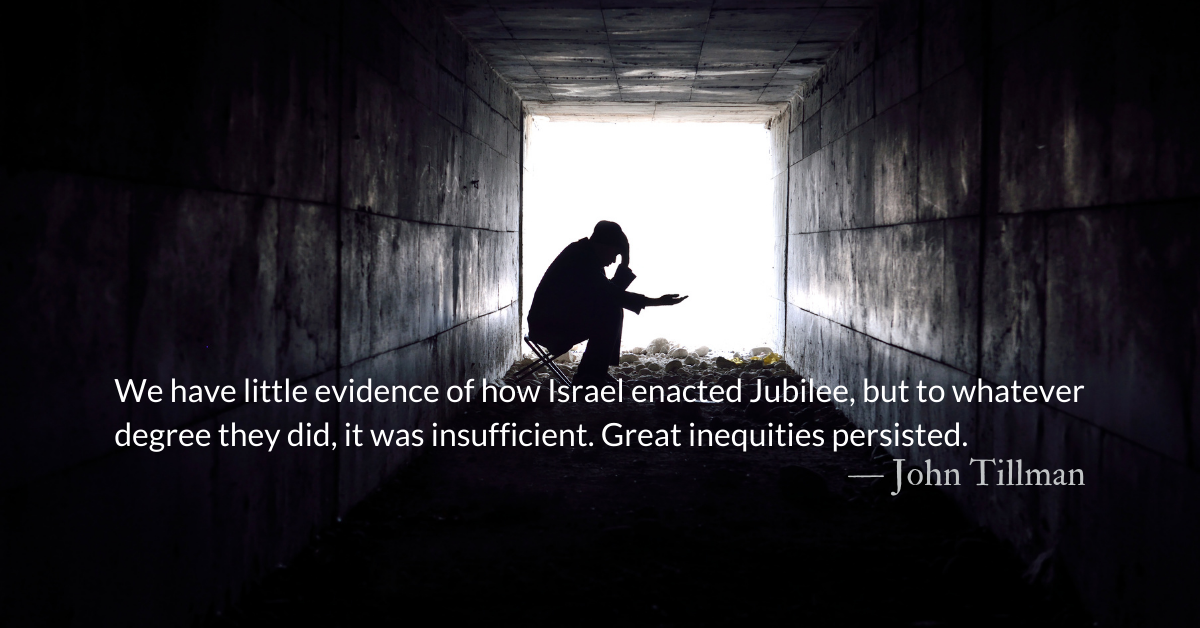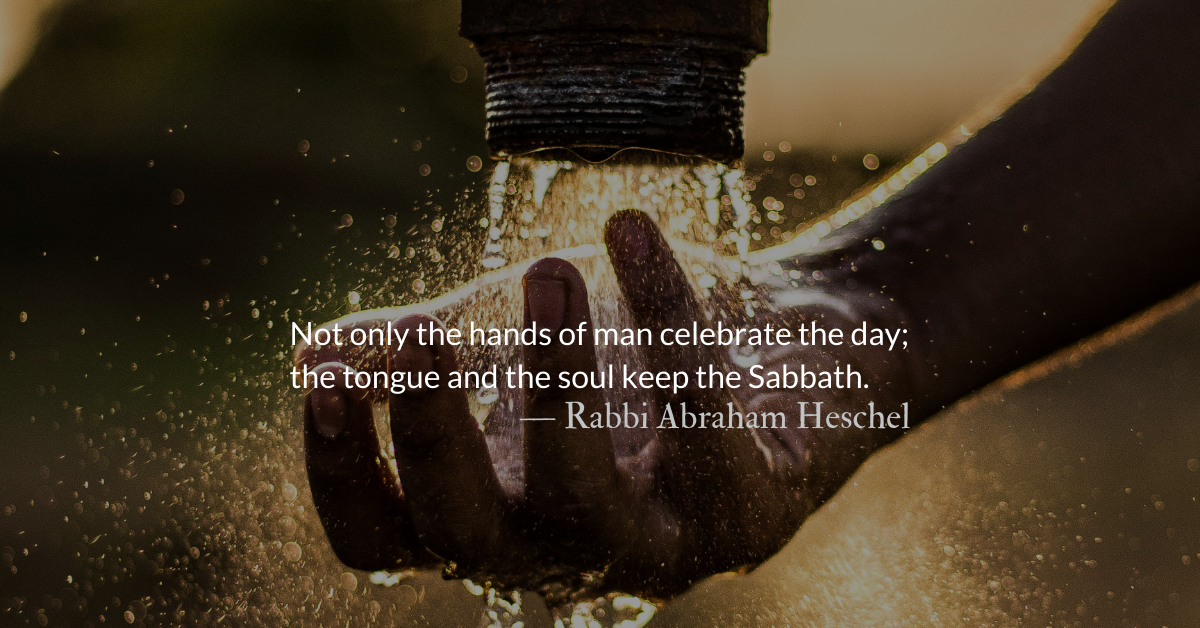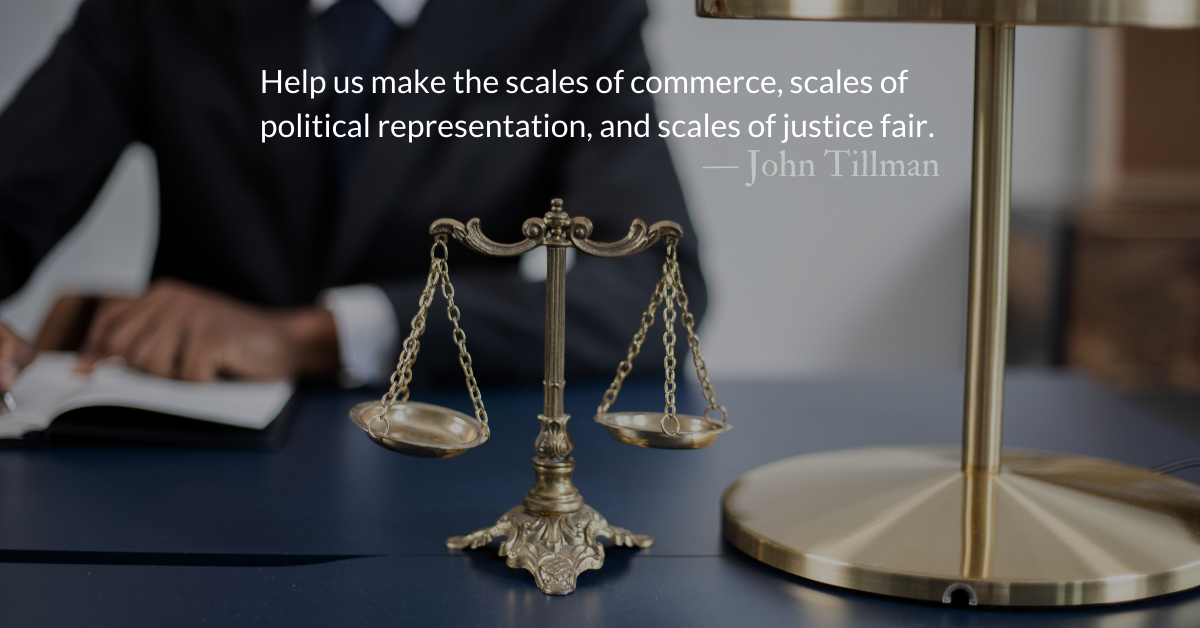Scripture Focus: Leviticus 26.44-45
44 Yet in spite of this, when they are in the land of their enemies, I will not reject them or abhor them so as to destroy them completely, breaking my covenant with them. I am the Lord their God. 45 But for their sake I will remember the covenant with their ancestors whom I brought out of Egypt in the sight of the nations to be their God. I am the Lord.’ ”
Reflection: He Is Faithful When We Are Not
By John Tillman
God will be faithful to his purposes even when his people are not.
Like many places in scripture, in Leviticus 26 God lays out stark choices and consequences. He says, in effect, “Will you have promises and blessings or curses and punishments?”
One of the benefits of rereading the Bible over and over is more easily recognizing patterns and recurring descriptions. The descriptions of consequences for the unfaithful are so accurate to the actual events that occur later in Israel’s history they might as well be read as prophecy. Sadly, every one of the events described will occur as Israel continues to turn away from God in the future.
Warnings, promises, consequences, and blessings all seem like they would be effective motivators. “Do this and die or do this and live,” seems easy enough. But it isn’t.
Despite clarity of the consequences, Israel persevered in sin, rather than faith.
Despite miraculous evidence of God’s faithfulness and power, Israel chose to trust false promises of political powers.
Despite being granted the visitation of the invisible God in a visible form (Leviticus 9.23), Israel chose to trust idols of human creation rather than the God who made the wood and stone from which false idols were carved. (Isaiah 44.16-19)
Haven’t we made similar errors in judgment? Haven’t we suffered through anguish persisting in sin yet abandoned righteousness when it got uncomfortable? Haven’t we shown incredible loyalty to political powers who proved themselves to be the opposite of credible? Haven’t we trusted in idols of technology that shape our psyches rather than the God who desires to shape our souls? Our faithlessness was never in doubt. However, our salvation does not rest upon our faithfulness—it rests upon his.
Whatever his people choose, God is making a choice, too. God knows Israel will be unfaithful. He’s going to be faithful anyway. God knows Israel’s love for him will run cold. He’s going to love her anyway.
It is not only true that “while we were yet sinners, Christ died for us.” (Romans 5.8) It is also true that before we had even sinned, God determined he would provide salvation for us. While we did not yet know what depths of sin we would commit, God decided that there was no depth so deep that he would not rescue us.
However deep in sin you sink, lift eyes and hands to him. He is prepared to pull you out.
Divine Hours Prayer: The Morning Psalm
Have mercy upon us, O Lord, have mercy, for we have had more than enough of contempt,
Too much of the scorn of the indolent rich, and of the derision of the proud. — Psalm 123.3-4
– Divine Hours prayers from The Divine Hours: Prayers for Springtime by Phyllis Tickle
Today’s Readings
Leviticus 26 (Listen – 6:22)
Psalms 33 (Listen – 2:08)
Read more about Too Much To Hold
Like Jonah sunk, beneath the earth
A dark and hopeless pit
Into that pit our savior slides
His mission: open it
Read more about The Undeserved Banquet of the Gospel
God sets his table for scoundrels, shaking hands with undeserved trust.











